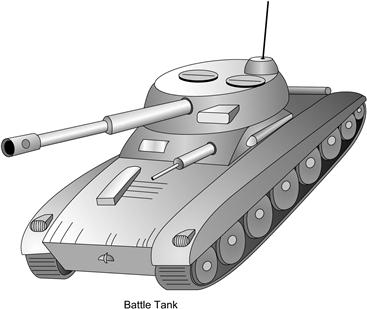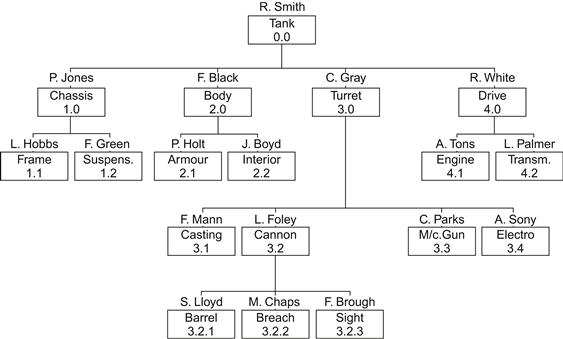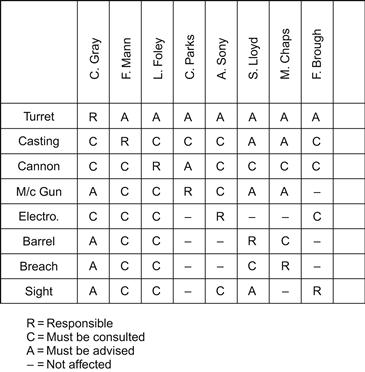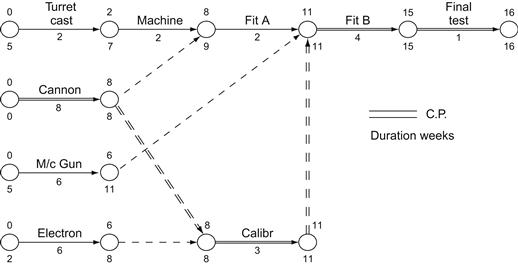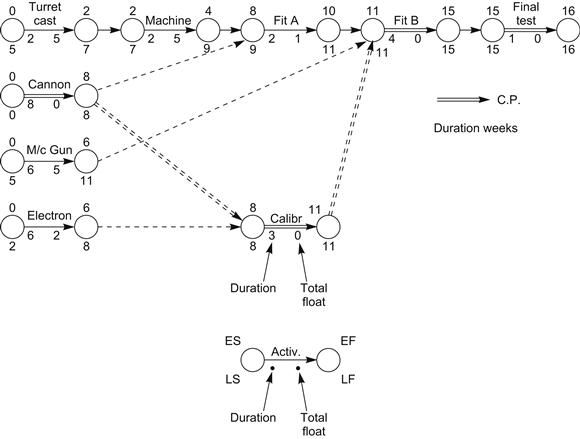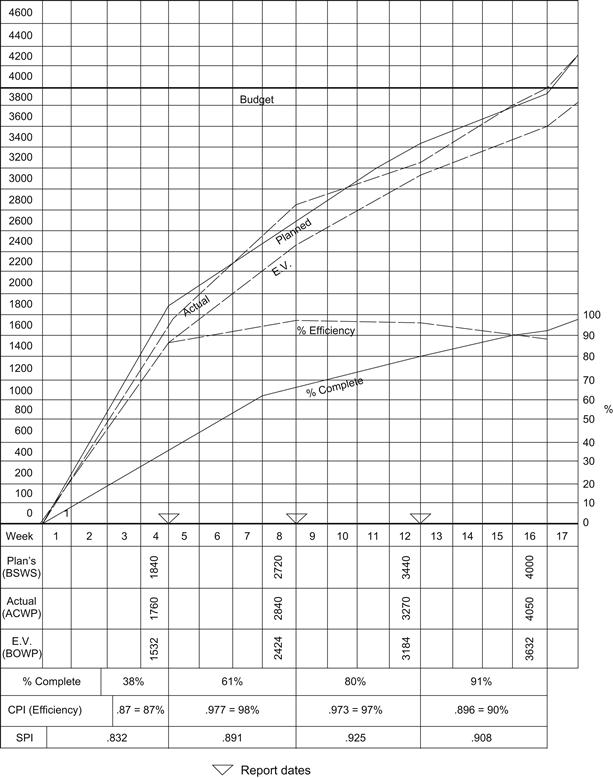Worked Example 4
Battle Tank
Chapter Outline
Business Case for Battle Tank Top Secret
Memo: From: General Johnson
To: The Department of Defence
1 September 2006
Subject: new battle tank
It is imperative that we urgently draw up plans to design, evaluate, test, build, and commission a new battle tank.
The ‘What’
A new battle tank which:
(b) Has a top speed of at least 70 mph
(c) Weighs less than 60 tonnes fully loaded and fuelled
(d) Has spaced and active armour
(e) Has at least 2 machine gun positions including the external turret machine gun
(f) Has a crew of not more than 4 men (or women)
(g) Has a gas turbine engine and a fuel tank to give a range of 150 miles (240 km)
The ‘Why’
(a) The existing battle tanks will be phased out (and worn out) in 2008
(b) Ruritania is developing a tank which is superior to our existing tanks in every way
(c) The existing tank at 80 tonnes is too heavy for 50% of our road bridges
(d) The diesel engine is too heavy and unreliable in cold weather
(e) The armour plate on our tanks can be penetrated by the latest anti-tank weapon
(f) A new tank has great export potential and could become the standard tank for NATO
Major risks
(a) The cost may escalate due to poor project management
(b) The delivery period may be later than required due to incompetence of the contractors
(c) The fuel consumption of the gas turbine may not give the required range
(d) Ruritania will have an even better tank by 2008
(e) No matter how good our tank is, NATO will probably buy the new German Leopard Tank
(f) Heavy tanks may eventually be replaced by lighter airborne armoured vehicles

